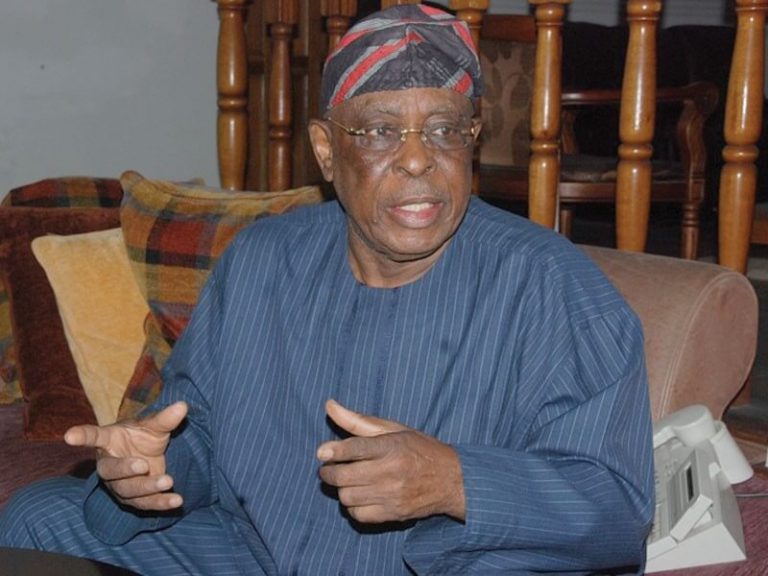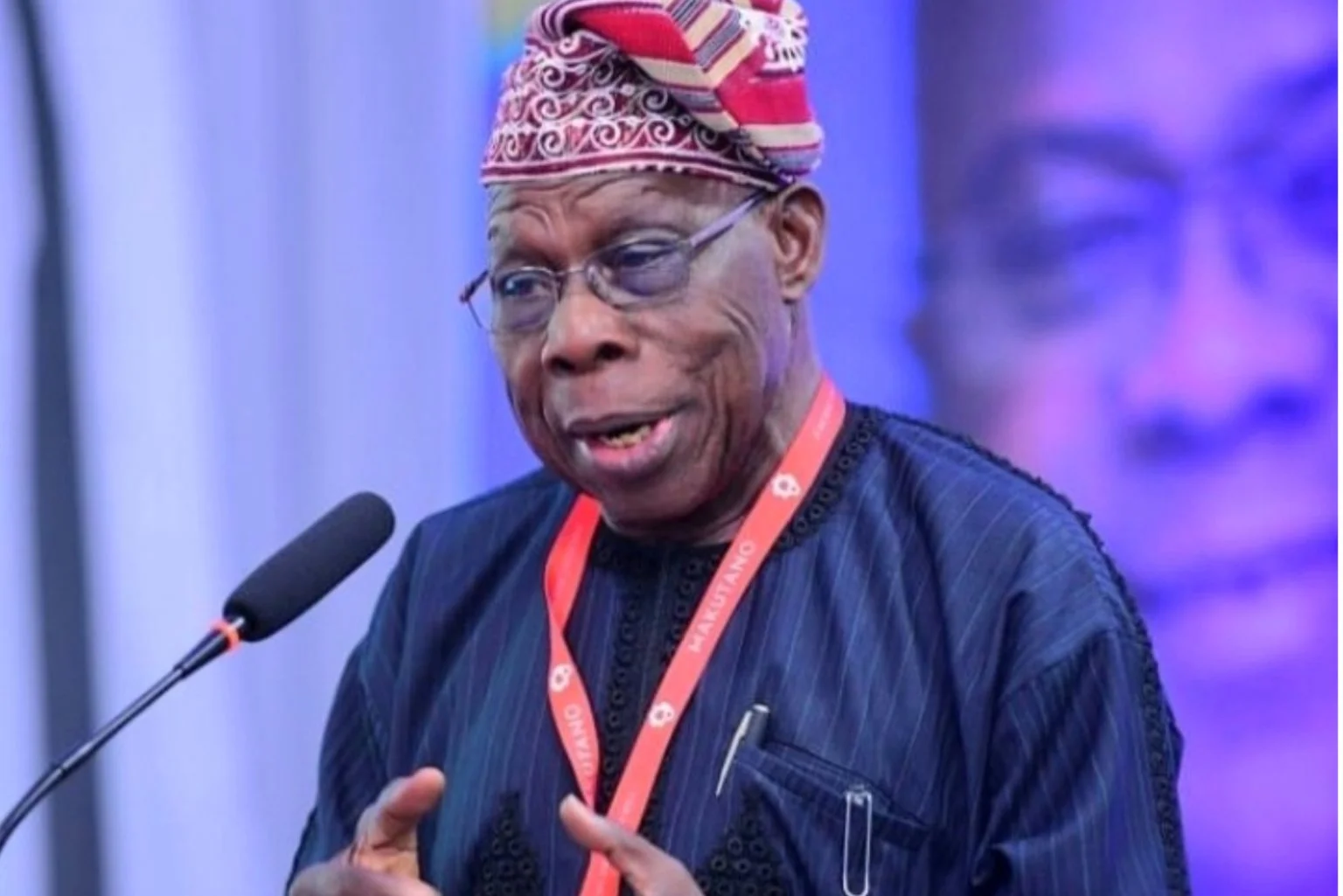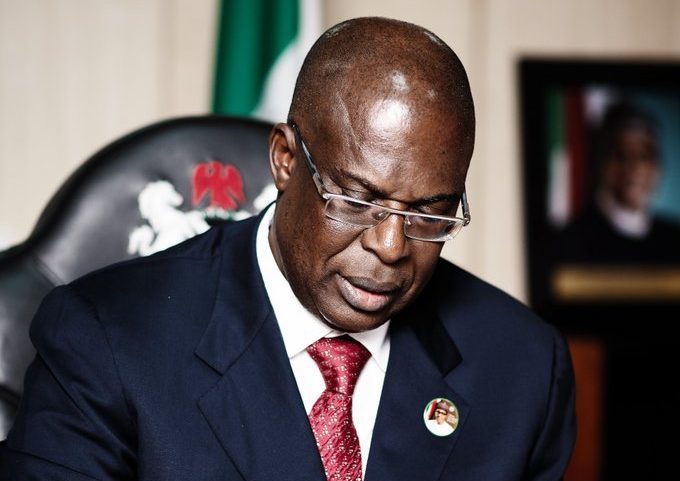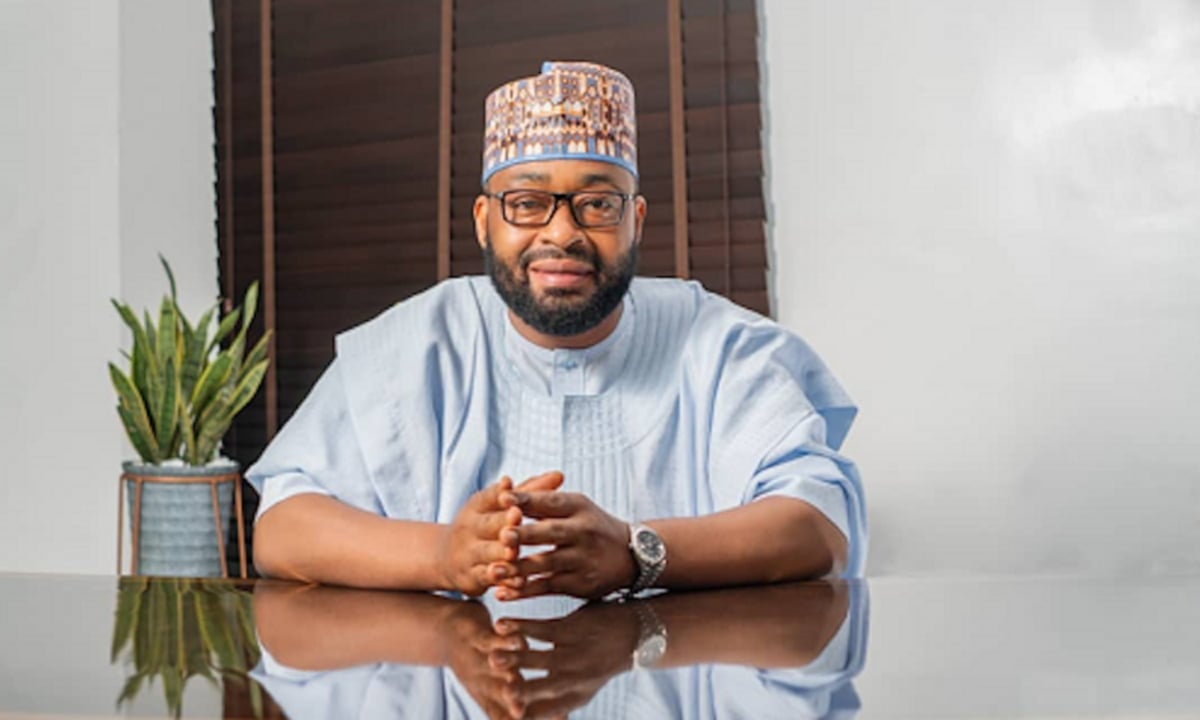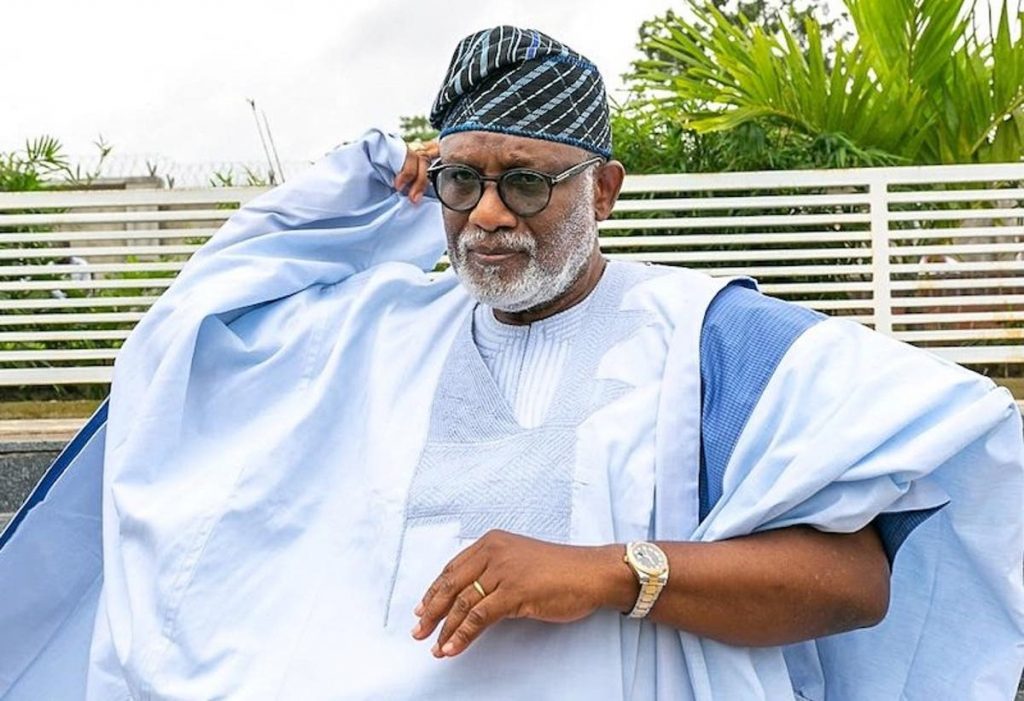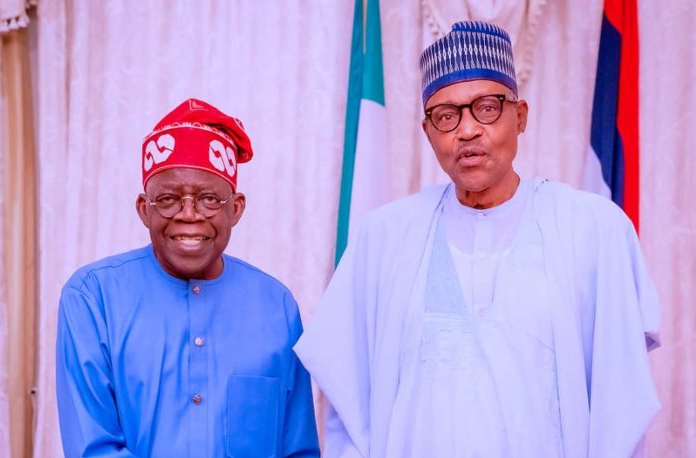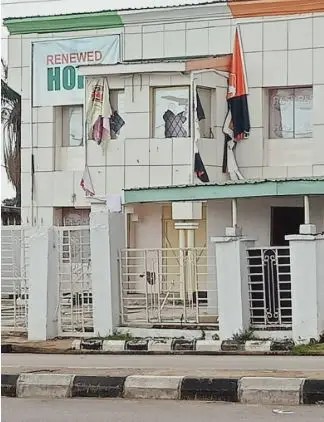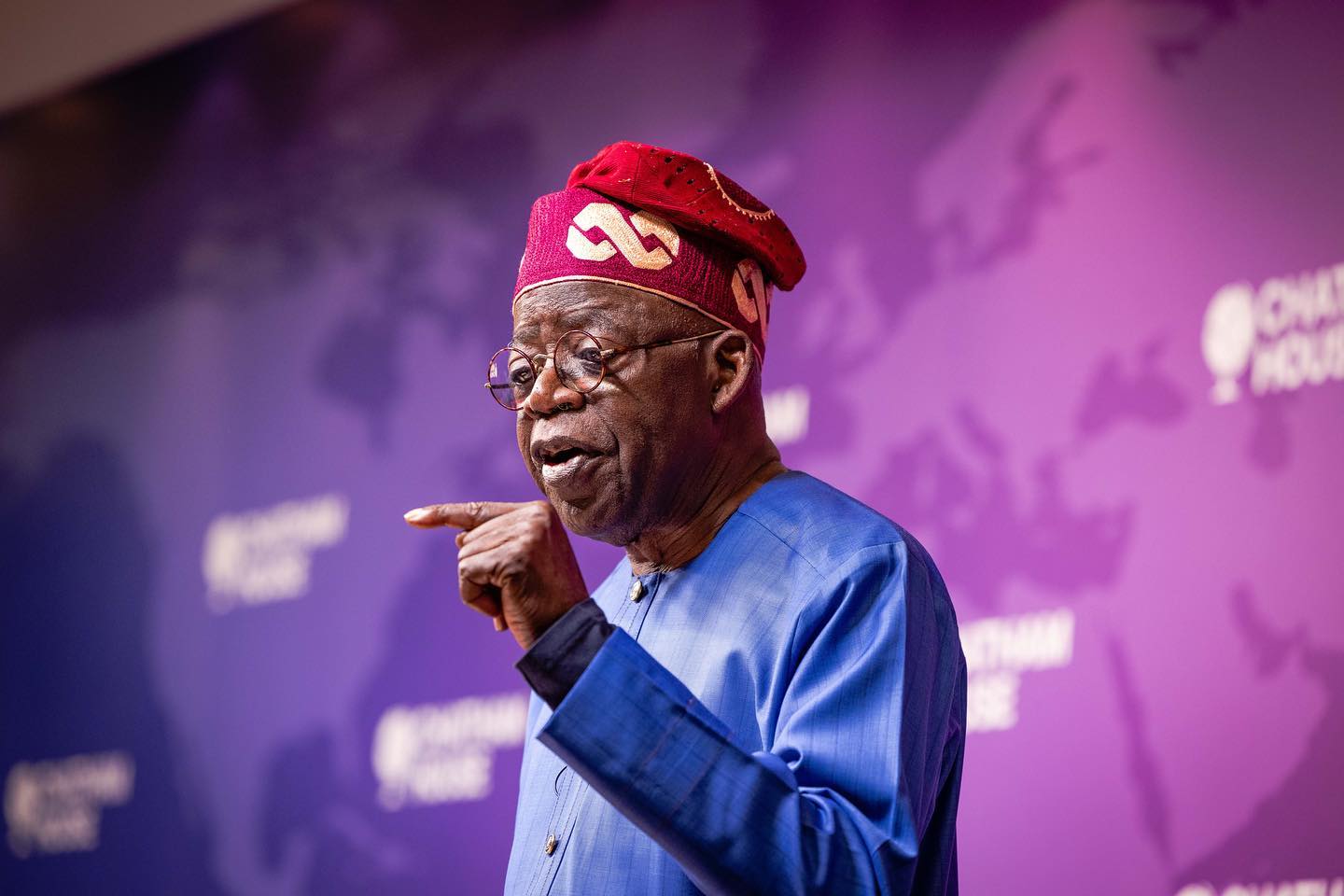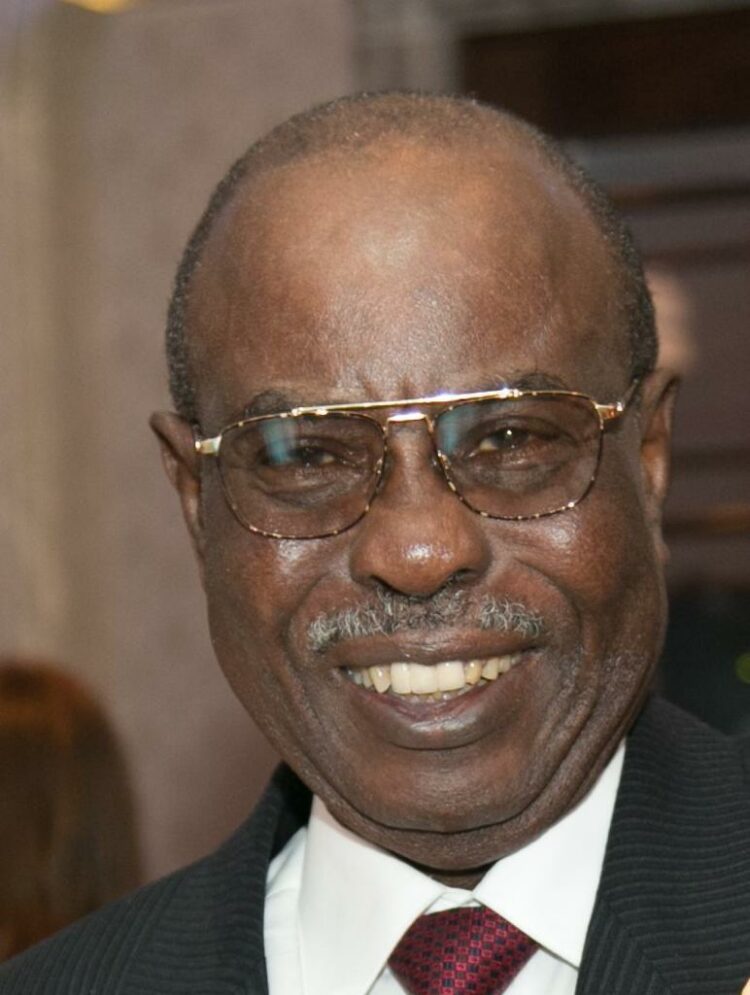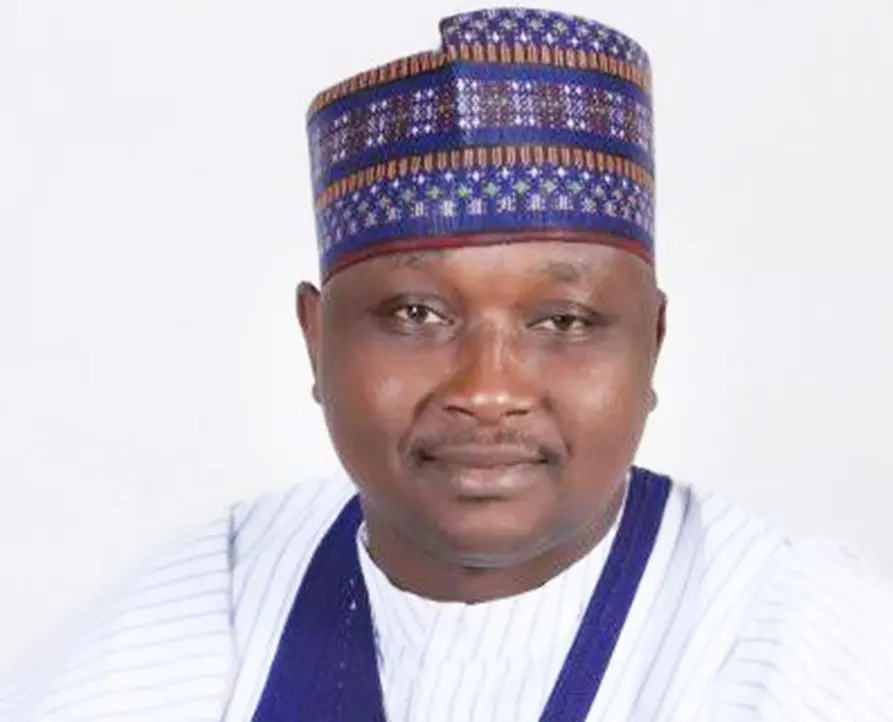Chief Segun Osoba, a former governor of Ogun State under the Alliance for Democracy (AD) (1999-2003) and one of the founding members of the ruling All Progressives Congress (APC) interacted with journalists about the preparations for his 80th birthday anniversary coming up on July 15, 2019 and his book entitled Battlelines: Adventures in Journalism and Politics, being launched today. He discussed how journalism impacted his life positively, various assassination attempts on his life and the problems of Yoruba socio-cultural organisation, Afenifere, among other national issues. SEYE OLUMIDE was there.
How did you feel celebrating 80?
I feel elated that the Almighty God kept my life till now because I had major medical challenges few years ago that could have ended my life. I survived major assassination attempts on my life, which was by the immense grace of God. That is why I take every day as an extra day from God to me and I do thanksgiving daily.
Can you give insight into why you chose journalism as a career?
I found myself in journalism by accident. I was to study law because my closest teacher in school, the late Chief Adenola Oshuneye wanted me to study law. He was even furious that I decided to go into journalism because I had admission into the University of Lagos (UNILAG) to study law but Alhaji Babatunde Jose persuaded me to jettison the idea of reading law and take up journalism. In my school days, I contributed regularly to the school magazine called the Magnate in Methodist Boys High School, Abeokuta.
What attracted you to journalism? Some of your age category said they ran away from the profession because they felt the proceeds from it wouldn’t take care of their family needs?
The attraction to journalism is the challenge because a good journalist faces challenges everyday. Journalism is adventurous and educative and you learn everyday. Journalism gives exposure. And for someone, who is streetwise like me, I found journalism a great profession because you have the ability and training to relate with all sectors of the society including, armed robbers, prime ministers, parliamentarians and even petty thieves. For instance, I started my career as a journalist covering little crimes. A journalist must be comfortable with all sectors of the society. It is a great training ground that helped me in my years as a politician. Journalism trains someone to be a leader and to be objective. The profession trains someone to accept other people’s opinions because most of the times we publish articles and stories that we disagree totally with. A journalist’s duty is to report issues so that the public would make their judgment.
How did you break the news of the assassination of the Prime Minister, Alhaji Tafawa Balewa?
I am tired of repeating this story because it is in my book. People talk of the assassination of Balewa as perhaps the only major story that I did but there are too many exclusives I also wrote. For example, Joseph Tarka ordered a Mercedes Benz, which became a controversial thing. Bolaji Ogunsanwo and I covered the exclusive story. I had many exclusive stories during the civil war and even in my later years when I got to Sketch and Herald Newspapers the assassination of the late Head of State, Gen. Murtala Muhammed and the capture of Col. Bukasuka Dimka that held the country to ransom, I was there and I have the full details of the report. All of these are in my book. When Taiwo was killed, again I was the one with the then Governor of Kwara State who went and discovered the body of Col. Taiwo on the way to Offa. The issue of Shugaba, who was taken physically across the border and thrown like a stone across the border I, reported it. The impeachment of former governor of Old Kaduna State, Alhaji Balarabe Musa I was there. I can recall many exclusive stories that I covered. There had been too much emphasis on the prime minster’s assassination story. However, it was the major beginning that threw me into the hall of fame.
Can you give us insight into some of the assassination attempts on your life?
Some of our people who I would call vicious characters and I will give you examples they are in my book but I will give you my piece of mind on it. People like Wale Oshun, who wrote a book titled Clapping With One Hand, he created the impression as if I was nobody in the National Democratic Coalition (NADECO) struggle and Senator Femi Okurounmu, who for years because he wanted to be governor of Ogun State tagged me as the late Gen. Sani Abacha’s Turncoat. I have had the occasion to challenge my detractors if any of them suffered as mush as I did, if they did then they have the right to insult me otherwise they should keep their mouths shut forever. I want them to reply in detail the way I have put documentations in this book, the way I have put the names of witnesses.
I was the first to be arrested after the formation of NADECO by Abacha and I was taken to Kam-Salem House. I mentioned Oba Rilwanu Akiolu 1, who was then the Commissioner of Police that gave me his office to use after the closing hour because I was sleeping in a big hall infested with rats.
I was the first to be charged to court along with former governor of Lagos State, Bola Tinubu and Commodore Dan Suleiman before Justice Shonowo. We were to go to jail but the justice ruled on the matter. When we were not granted bail, the late Chief Judge of the Federal High Court, Justice Belgore intervened and granted us bail. I went through that. We were transferred from Kam-Salem House to Alagbon Police Station where we used to take our bath in the open space as early as 6:00 a.m. Tinubu, Suleiman, others and myself were there.
Read Also: Oluwo calls for urgent reforms of Yoruba traditional system
Subsequently, the attempt on my life started on August 24, 1994 when the acclaimed winner of the June 12, 1993 Presidential election, Chief M.K.O Abiola had returned and had then been arrested. We were to go and celebrate his (Abiola) first birthday in detention when they came to my house on the night of August 23. They had attempted to bomb Dan Suleiman’s house a day before just as they also attempted to set the late Chief Gani Fawehinmi’s chamber on fire. When all these attempts on Fawehinmi and Suleiman had occurred, I went into hiding. I was lucky to have escaped because they were out to eliminate me but I was not at home. They gained access into my house without using any key. Unfortunately, the SSS attached to me as a former governor, Stephen Itokpa didn’t know that the invaders were security people, he engaged them in a shootout but when he exhausted his ammunition, he escaped through the fence. That was the first attempt on my life in 1994, the rest I didn’t know until Sargent Roggers, the government’s hit man came to give evidence in court and Tell Magazine did an interview where he revealed all that transpired.
The second attempt was September 1995 when they wanted to set my house on fire in Abeokuta. I also managed to escape because I didn’t sleep early on that day. I just heard a spark and smoke engulfed the entire room. I have all the narrative in my book. The fourth attempt was the evidence of Roggers in the court that they were sent out to kill the late Afenifere leader, Senator Abraham Adesanya, myself, the late Publisher of The Guardian Newspaper, Dr. Alex Ibru, former Attorney General of the Federation and Minister of Justice, Chief Bola Ige and others. Another time was when they trailed me from Shagamu to Abeokuta, the military boys on the road checkpoint waved me on but the few minutes that they stopped them (Roggers and his gang) gave me the opportunity to escape. Five times I escaped attempted assassinations. So when Oshun and Okurounmu were talking I looked at them as small boys in the struggle. If they didn’t go through the kind of things I went through, they should remain silent.
What about the reports of several attempts on your life during the administration of a former governor of Ogun State, Otunba Gbenga Daniel?
He accused me of wanting to kill him on October 19, 2003. It was a lie. He got me arrested and I was taken to Zone 2. It was a makeup story by Gbenga Daniel but it is all over. It is all in my book.
How come the founder of Action Group (AG), Chief Obafemi Awolowo described you, the late Peter Ajayi and Felix Adenaike as the three musketeers?
I keep saying that the three of us were the youngest people, who were close to Awolowo. Of the living those closest to Awolowo, who are my elders are former governor of Lagos State, Alhaji Lateef Jakande and Chief Ayo Adebanjo. The Awolowo family knew that we dined with the former Premier of Western Region and got tutelage under him. We did our ‘Phd’ in public life by being mentored by him. He made us part of all the Unity Party of Nigeria (UPN) organs. There was no organ of the party that the three of us did not belong to. I can challenge them to produce the kind of photographs I took with Awolowo in Yola. I was with Papa Awolowo in Ikenne during the last broadcast that he made before the 1983 election. I have the action photographs of those events. Can any of them produce such photographs? I have the record of all the minutes of UPN. I want people to react to my book and I want anyone who is going to react to counter the things I said with documents. If I were to use the photographs, the book will become too voluminous. If I were to use all the documents I have, I would have ended up writing an encyclopedia. But I restrained myself from using much documents.
But with all that you have been saying Afenifere is still gasping for survival?
Our elders started the breakup of Afenifere with Bola Ige issue. The D’Rovans election was the beginning of the end of Afenifere. The details are also in my book but I feel bad that even in his grave, Ige is still being attacked in writing. And I have challenged the Afenifere elders how many young people are with them now and whom would they hand over the leadership of the group to? Me I am part of the elders and we are beginning to become a total failure. When we all go there would not be an Afenifere because our attitude does not accommodate contrary opinion. I will give you examples. We the Afenifere were registered under AD and Oyegun was part of us. We had a meeting in Kaduna where Oyegun made a suggestion that since AD needed a spread to enable it to win the presidential election why don’t we collaborate with All Peoples Party (APP) under Mahmoud Waziri? If you see how our elders lambasted Oyegun to the point that he was kicked out of AD yet Oyegun suffered more than anybody in exile. He was kicked out and at the end of the day our fathers didn’t provide alternative because they are one-way thinkers. But they later returned to what Oyegun had suggested earlier but by then the elected APP governors were against us. If they had cooperated with us there was no way Obasanjo could have won the 1999 presidential election. That is why I always hit hard at all the elders that they are the ones who destroyed the AD’s opportunity of winning the 1999 presidential election because the whole country had conceded the presidency to Yoruba and Falae was at the forefront to win.
Our leaders are always one-way route and once you come up with alternative suggestion, you become an enemy. They don’t read history.
When you are fighting for a cause, there must be an alternative agenda. Take for example restructuring; we are all for restructuring and true federalism and you keep saying you want it right and now. Is there any provision in the constitution where the president is empowered to decree restructuring? I have been telling them to let us engage the National Assembly but they will go to the pages of the newspapers shouting to the top and by the time these elders met the Eight National Assembly under Bukola Saraki and Yakubu Dogara the Senate President and Speaker of the House respectively late last year and discovered many of the things that had been done and how far the lawmakers had gone to approve certain provisions in the change of the constitution they were surprised. I challenged them to come out and tell me what they came out with after their engagement with the National Assembly.
This country, whether the 1999 Constitution is perfect or not, we have to engage the National Assembly to get restructuring. Even if we want a referendum, the legislature is the only body that can pass an act and cede its powers to that referendum. They will shout and when election comes they cannot produce a single legislator. Which way are we going to get this nation restructured? Vice President Yemi Osinbajo has given us an example when he was the Attorney General and Commissioner of Justice in Lagos State. They went to court to get a lot of things change. They got the Supreme Court to rule that local government is out of the control of Federal Government but for the state and Tinubu created Local Government Development Councils (LCDA), which I also replicated in Ogun State.
Osinbajo also gave an example of how Lagos got the Supreme Court to rule that all federation money must go to the state and they succeeded. Why is it that our elders don’t think and many of them are lawyers? I am still waiting to see how we can restructure without engaging the National Assembly.
What are the impacts of your parents and others, who added value to your life till this moment?
I give the greatest thanks to my father, who was a disciplinarian. We were trained to wake up at 6:00 a.m. Most times, we woke up before 6:00 a.m. and still remained in bed but when we heard the sound of father’s footsteps, we would wake up to avoid being flogged. My father taught me how to be frugal. For example, when I was in secondary school, he always told me to go to UTC and Lennards stores to find out the prices of shoes before making my choice. He chose the cheapest ones. I learned from him that the best material to use is guinea brocade and Aso Oke.
My mother was a reserved person who taught me how to respect people.
Another great influence on me was my uncle, Prophet Joseph Ayo Babalola. People don’t know that I am related to him. He was one of the founders of Christ Apostolic Church (CAC). I spent most of my holidays with him. He was the one who named me Oluwasegun, because my mother had some children before me who did not survive. Joseph Babalola named me Oluwasegun, saying I would survive. I am 80 today and I am grateful to God and Prophet Babalola. The religious aspects of my life were learned from Babalola.
The rascal side of my life was learned from Lagos. I was a member of virtually everything. I have a picture of myself, which was taken in 1964, when I was a member of Alakoro Boys and Girls Club in Ebute Ero. We were trained on how to be streetwise. We were trained on how to serve humanity and how to serve the people. My exposure was not limited to academics as I was virtually involved in many societies including Red Cross, Scout, Debating Society, and Yoruba Cultural Group. I had broad education.
To what extent did Babatudne Jose influence your rise in journalism?
After my childhood days and I decided to go into journalism, Alhaji Jose truncated my studying law law and immediately made me to go to the University of Lagos in 1965. Alhaji Jakande brought the International Press Institute Training in Nairobi to Lagos. We were the pioneer people in the University of Lagos. The course later metamorphosed into the Department of Mass Communication of the institution.
In 1965, expatriates were sent from the International Press Institute in London to the University of Lagos. And at the time I left the University of Lagos in 1965, Alhaji Jose sent me to the UK for a course under the Commonwealth Press Union. Within two years of joining Daily Times, I had done two major courses in journalism. As at 1970, I had gone to Indiana University, Bloomington for another diploma course in journalism. It was as if Alhaji Jose was preparing me early for something big in journalism. When people say that I didn’t go to the university, I wonder if someone who attended these institutions and attended Harvard University for a postgraduate course is not educated in their sight. What did they do that I have not done? To have been qualified as a Niemen fellow is one of the greatest honours in America because the fellowship is limited to 15 people annually and I did a year-postgraduate course in Harvard University.
But Oyebola has said severally that Jose liked you more than him…
They said I was Alhaji Jose’s lapdog. That was why I decided to go to Herald after the crisis in Daily Times to prove myself. If I was a lapdog or favourite, who didn’t know the job, how come the paper succeeded under me? Without being immodest, there is no newspaper I managed for which I ever collected subvention from the Federal Government. I made profits in Herald and turned around Sketch when I started managing it. At Sketch, I built new office complex, and bought new equipment. By the time I came back to Daily Times, the NPN had destroyed it but I turned it around to the extent that we were paying dividends to shareholders. Would a man, who didn’t know his left and right and who they said became editor by favouritism, have been able to lead Daily Times? I am proud to say that I am one journalist in Nigeria, who managed three major newspapers and made them profitable. I paid salaries as and when due and provided housing and car loans.
Apart from managing three successful newspapers, I am involved in Vanguard and The Guardian, which are major newspapers. When people talk, they don’t know that the idea of starting The Guardian was Alex Ibru’s and mine. That was why the managing directorship was reserved for me for years.
Can you recall your days as a member of the defunct Constituent Assembly?
That was the beginning of my foray into politics. I was a member of the People Solidarity Party (PSP), which metamorphosed into the Social Democratic Party (SDP).
Would you now say that a two-party system is better?
The two-party system is the best for Nigeria. That is why I said the mistake former Military President, General Ibrahim Babangida made by annulling the June 12, 1993 presidential election destroyed the political engineering that was put in place by political scientist, Dr. Cookey and Prof. Omo Omoruyi, who headed the Centre for Democratic Studies (CDS). The two-party system placed the progressives on one side and the conservatives on one side.
At that time nobody defected from SDP to NRC or from NRC to the SDP. Nobody did that no matter the problem in the respective parties because the ideological divide was very clear. For example, Sen. Kofo Akerele-Bucknor became a senator with two votes. The primary that was used then was the open ballot system where people queued behind the candidates of their choice to vote. What happened was that Alhaji Wahab Dosumu was at the forefront to win but there was a disagreement, which made them to boycott the primary. Akerele-Bucknor stubbornly said she was not going to boycott and only two people queued behind her and she won because the SDP said they were boycotting. Her two votes were upheld and she became a senator.
In spite of that, neither Dosumu nor the other person left the party. The party still accepted her despite the fact that she was not the first choice. If we had gone with the two-party system, Nigeria would have been a better country today. There was only a little difference between the number of SDP and NRC governors. It was also the same in the Senate. The caliber of those, who became governors at the time was high Chief John Odigie-Oyegun, Chief Chukwuemeka Ezeife, Alhaji Saidu Bada in Katsina, they were all retired federal permanent secretaries. The late Governor of Kaduna State, Dabo Lere was a retired General Manager Essential of Commodities. Shaba Lafiagi of Kwara State was the General Manager of Bacita Sugar Industry. I was the Managing Director of Daily Times. Former governor of Lagos State, Chief Michael Otedola was a Personal Assistant to Awolowo. Former Governor of Ondo State, Bamidele Olumilua had a successful foreign service career. I can go on to name other governors who were people of high exposure. It is different from what we have now.
On becoming governor again in 1999…
Abacha kicked us out on November 17, 1993. Six years after, the state asked me to come back. In any of my elections, I was never challenged in court. In 2003, I won the election but Obasanjo wrote the figures. The details are in my book.
You once said that you grew up with top military leaders. Since you were close to them when they were in leadership positions as young people, how do you feel hearing their names often mentioned anytime Nigeria’s leadership crisis is discussed?
Of course the military was in control for many years. Two weeks ago someone said that I was a security agent during the military era. What they don’t know is that many of these military offers were second lieutenants when I became famous as a result of the Balewa story that I wrote in 1966. I met some of them in 1961 when I went to Cameroon for Man’O War drills. I always tell them that they are generals in the military while I am a field marshal in my profession. These are people who I grew up with. Babangida was one of them. The greatest ‘terror’ in our days was Air Marshal Abas. That was when we used to visit nightclubs all over Lagos. How can I now be an agent of the people I grew up with? Is it not insulting? For instance, Babangida and I had interesting social life in Lagos as young people. For instance, in the war front, former Chief of Army Staff, Gen. Theophilus Danjuma (rtd) was a major serving under the late Gen. Shuwa at the First Division, which was the first military formation to start the war. I met all of them in the war front. Danjuma was then a field lieutenant colonel, Can the man I met in the war front intimidate me? I had hobnobbed with Tafawa Balewa, Adeniran Ogunsanya, Okotie Eboh and others in the parliament. How could my mates intimate me? I covered Sardauna of Sokoto and Awolowo as well as moving with other high people. Those who called me an agent are limited in scope, they lack contacts and they are envious that I had contacts and influence. As at 1964 I had a telephone, which made it possible for me to relate with ministers and other top people.
Wikileaks have been releasing names of agents, have they ever found my name on the Wikileaks list? As the officers were growing in the military, I was also growing in my profession. They must be stupid to think that I was a military apologist
With these explanations, are you dismissing the insinuation that you are a military apologist?
If I were a military apologist, would I have been able to run newspapers under the military regimes and made profits? It means that what I was giving out was acceptable to the readers. I replied them in my book. For instance, every newspaper has its editorial policy and all staff in the paper must lean in the direction of that policy otherwise you leave. There is no newspaper that is totally free. The freedom of any report stops where the editorial policy of the paper starts. Those saying that we that managed newspapers under the military regime are military apologists don’t know anything. I think I deserved some respect from those tagging me as a military apologist because of the achievements I recorded in all the newspapers I managed under the military without collecting subventions from governments. We walked a tightrope under the military governments and still made most of the newspapers profitable.
Was there a pact between the Alliance for Democracy (AD) and former President Olusegun Obasanjo in 2003 and did he betray you?
That is stating the obvious. It is in my book. In fact the last chapter is on the issue of how Obasanjo hoodwinked all of us. He deceived us by promising true federalism, fiscal responsibility and genuine census and our leaders believed him. The pact we had was that he would do major restructuring in his second term but he failed us. I have no regrets that he did what he did to truncate our second term because my landmark achievement of projects across the Ogun is still a benchmark of a successful governor. I have had two governors 16 years after I left office but if you go to any village in the state they will still refer you to what I did for them.
I thank God that Obasanjo truncated my second term but that made me relevant even at 80. How many of my peers has God given that grace to be respected to still remain relevant and endowed to see through all manner of tribulations that I survived?(The Guardian)

